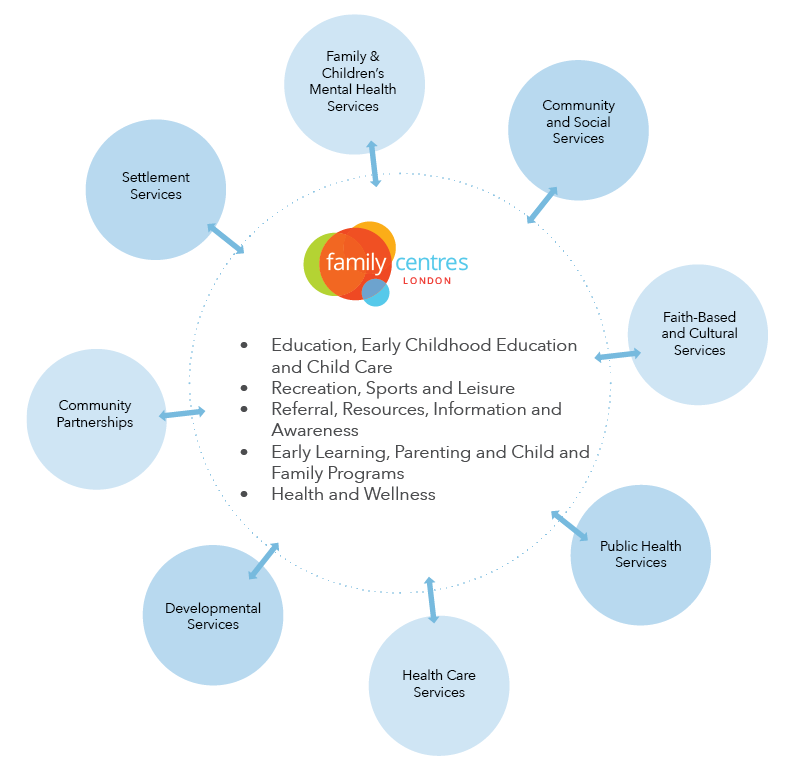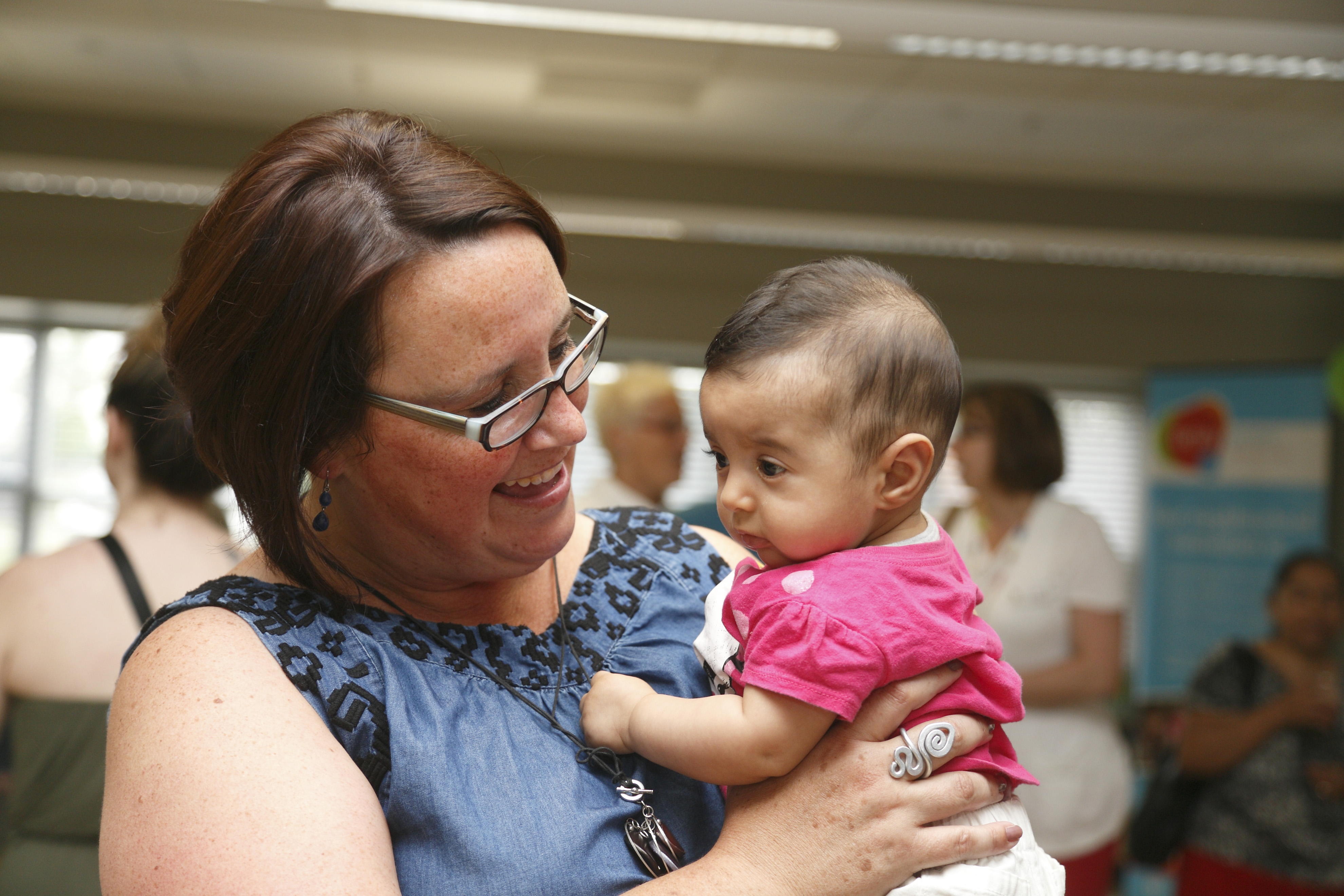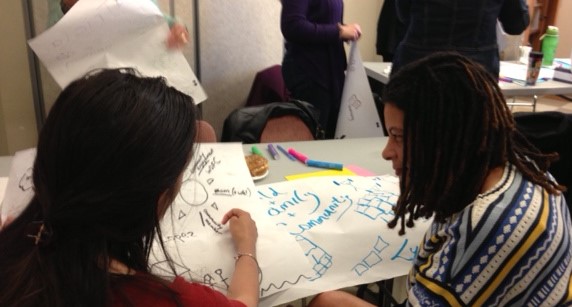
About Creating a Family-Centred Service System
When community partners first came together in 2007, families told us that London’s service delivery system was not seamless or easy to access. In fact, when asked about the service system, London families told us:
- The system was difficult to navigate.
- Services were fragmented.
- They didn’t know where to start.
- They were telling their story too many times.
- They had to travel all over the city for service.
- They had to wait too long to access the services they needed.
When families did access services or information they sometimes face additional barriers such as transportation and financial challenges, or having to repeat their stories to agencies that don’t seem to know much about each other’s work. Supported by a collective desire to improve outcomes for children, youth and families, service delivery organizations in London came together to create a more family-centred service delivery system at both the system level and the neighbourhood level.

Outcomes
- Families are connected and engaged in their neighbourhood.
- Families experience reduced storytelling.
- Families have better and more consistent experience when accessing services.
- Families can easily access a full range of services.
- Families experience shorter wait times.
Approach
The Family-Centred Service System (FCSS) objective is to improve outcomes for families by creating change through culture shift. The approach emphasizes collaboration between community partners and residents, interprofessional practice among service providers and the integration of services for families as mechanisms to improve access to services and supports.
The FCSS approach is not about changing services themselves, but rather about improving the family’s access to them. The FCSS strategy is focused on improved access to services, with the understanding it is the impact of the services themselves that creates change in the family’s lives. In the FCSS strategy, there are four goals that organizations share:
- Child-centred, family-focused services.
- Less fragmentation and duplication.
- Client-centred, integrated service delivery.
- Easier, improved and timely access to services.
Transformative change requires thinking differently at all levels – We believe that in order to make real change in how families are supported, we need to think differently at all levels. Whether planning at the system level or the neighbourhood level; whether operating at a senior leadership level, the service delivery level or any and all levels in between, individuals and organizations must commit to a cultural change in thinking about how they approach their work. Our commitment to this change is evident through our shared principles and values.
Service delivery organizations have been working together to establish a more family centred service system since 2009. In the past twelve years, a network of neighbourhood Family Centres has been established in key London neighbourhoods as part of a network of Family Centres across our community. It is imperative in any discussion about the FCSS approach, that we reiterate the role that Family Centres play; while they are one and the same, they are also uniquely different. Family Centres are recognizable, family friendly spaces where residents can go to experience the service system; in other words, Family Centres are the physical manifestations of the broader Family-Centred Service System.
Initiatives
Family Centres
Family Centres are easily-identifiable neighbourhood spaces attached to schools where families can access a full range of services to help them be successful in all areas of their lives. Family Centres provide services to families in an integrated, accessible, and family-friendly way.
For more information please visit http://www.familyinfo.ca/
Community Connectors
Community Connectors are fundamental to helping London families get connected to services and supports. In every Family Centre, families are greeted by a knowledgeable, friendly Community Connector who helps them connect seamlessly to more opportunities that help them be successful in all aspects of their lives.

Community Engagement
Residents are experts in their own lives, and designing a system that truly puts families at the centre requires organizations to listen carefully and plan accordingly. Using a local community development approach allows local residents, volunteers, associations, service clubs, and faith communities to be engaged in all levels of neighbourhood-based service planning and in the ongoing delivery of the local services.
To access tools and resources for this initiative, click here
Neighbourhood Planning
Neighbourhood Planning is a collaborative approach to planning between service providers and residents to create tangible, concrete and actionable plans to create seamless services that reflect the system vision for the Family-Centred Service System and the unique assets of the neighbourhood

Public Awareness of Family Centres
For families to access services, they first need to know about them. Multi-faceted, multi-channel, sustained marketing and awareness strategies are necessary for achieving the outcomes associated with family-centred system change. Through common branding, promotional products, and a digitally-focused public awareness strategy that engages families where they live, work, learn, and play, more families will be aware of Family Centres.
Continuous Communication and Information Sharing Between Partners
Communication and information sharing between partners is essential to move toward an integrated service system. Through effective, appropriate, and intentional information sharing between partners, families can tell their stories fewer times, and partners can provide more seamless connections to opportunities in the neighbourhood.
System Capacity Building
System change sometimes seems abstract, but it arises from a simple idea: people acting differently than they did before. Changing the service system to move toward an integrated, family-centred approach requires new ways of working together, and therefore new skills and competencies. Partners need tools, training, and resources to support their change efforts and build capacity to achieve the vision for the service system. This initiative aims to build the capacity of system partners to help create the change necessary within individual organizations to reach our collective goals and to deepen the impact of our work.
To access tools and resources for this initiative, click here
Service System Governance
The Family-Centred Service System has an active governing body that is responsible for collaboratively developing the shared vision, strategies, and expectations of the Family-Centred Service System. This governing body sets the strategic direction for how organizations and families will work together to improve outcomes for children, youth, and their families, which it then carries out through each of the Family Centres' neighbourhood implementation planning bodies. As these neighbourhood implementation bodies carry out the plans, they gain new insight into how to do this work, which is then shared back with the governance body as part of a continuous learning feedback loop.
Measurement and Evaluation
Measurement and evaluation of the Family-Centred Service System is ongoing, iterative, and developmental. The initial FCSS Measurement and Evaluation framework was developed early in the strategic planning process to frame and guide the FCSS strategy’s continued development. This initiative is aimed at providing partners with the tools and resources required to continually measure and evaluate our work to refine our approach to best support the outcomes we are collectively trying to achieve.
For more information please see: insert link to shared measurement platform.
Family Centre Locations
Family Centre Argyle
1990 Royal Crescent, London ON, N5V1N8
Family Centre Carling-Thames
335 Belfield Street, London ON, N5Y2K3
Family Centre Fanshawe
1800 Cedarhollow Blvd, London ON, N5X0C5
Family Centre Fox Hollow
2435 Buroak Drive, London ON, N6G5B6
Family Centre Westminster
690 Osgoode Drive, London ON, N6E2G2
Family Centre Westmount
1019 Viscount Road, London ON, N6K1H5
Family Centre White Oaks
565 Bradley Ave, London ON, N6E3Z8
 rtraction
rtraction